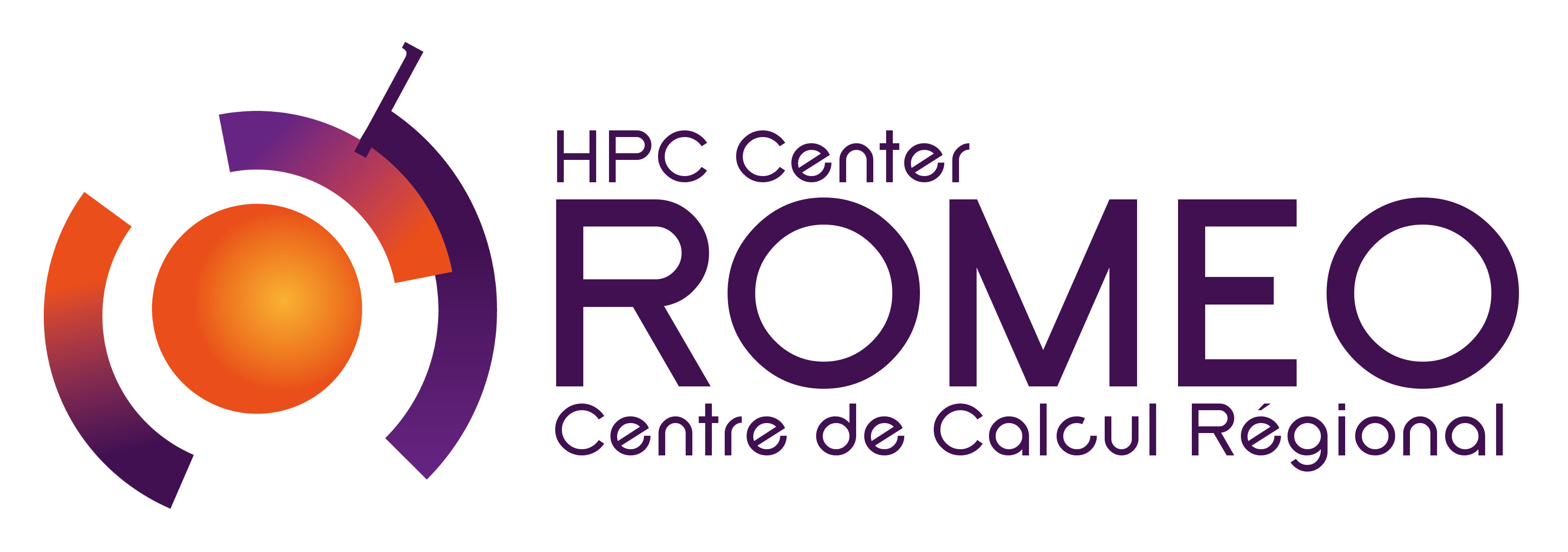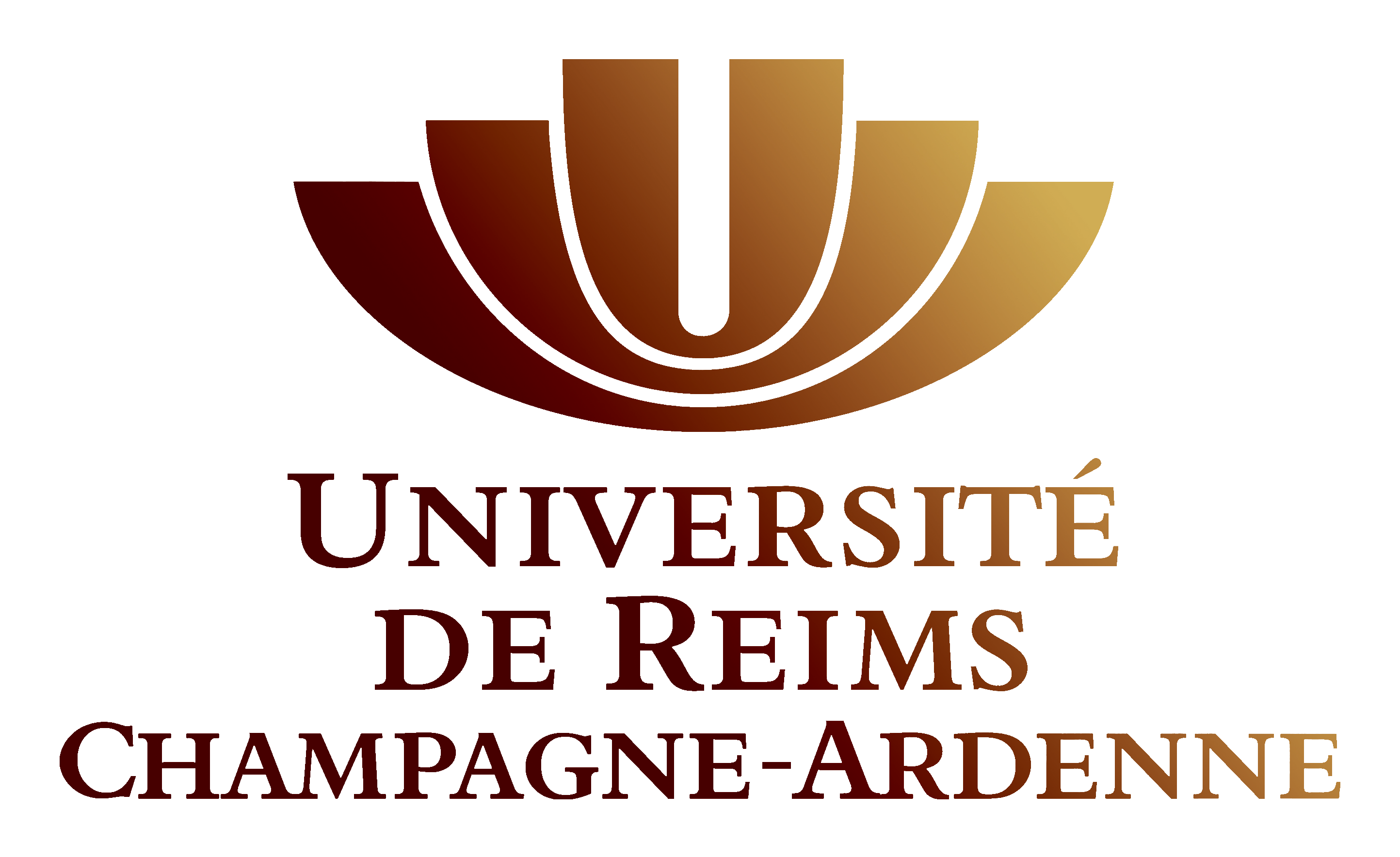29th VI-HPS Tuning Workshop (ROMEO, Reims, France)
Date
Monday 15th - Friday 19th October 2018.
Location
The workshop will take place at the Centre de Calcul de Champagne-Ardenne ROMEO, Université de Reims Champagne-Ardenne (URCA), in Room 2003 of Building 18, Campus Croix Rouge, Rue Pierre Taitinger - 51100 Reims, France. (campus access)
Co-organizing Institutions
Goals
This workshop is organised by VI-HPS for the French PRACE Training Centre to:
- give an overview of the VI-HPS programming tools suite
- explain the functionality of individual tools, and how to use them effectively
- offer hands-on experience and expert assistance using the tools
On completion participants should be familiar with common performance analysis and diagnosis techniques and how they can be employed in practice (on a range of HPC systems). Those who prepared their own application test cases will have been coached in the tuning of their measurement and analysis, and provided optimization suggestions.
Programme Overview
Presentations and hands-on sessions are on the following topics:
- MAQAO performance analysis and optimization
- BSC tools for trace analysis and performance prediction
- Score-P instrumentation and measurement
- Scalasca automated trace analysis
- TAU performance system
- Vampir interactive trace analysis
- MAP+PR profiling and performance reports
- and others
A brief overview of the capabilities of these and associated tools is provided in the VI-HPS Tools Guide.
The workshop will be held in English and run from 09:00 to not later than 18:00 each day, with breaks for lunch and refreshments. There is no fee for participation, however, participants are responsible for their own travel and accommodation.
Classroom capacity is limited, therefore priority will be given to applicants with MPI, OpenMP and hybrid OpenMP+MPI parallel codes already running on the workshop computer systems, and those bringing codes from similar systems to work on. Attendees will need to bring their own notebook computers (with SSH and X11 configured) and use (eduroam) wifi to connect to the workshop computer systems.
Outline
The workshop introduces tools that provide a practical basis for portable performance analysis of parallel application execution, covering both profiling and tracing. It will be delivered as a series of presentations with associated hands-on practical exercises using a local high-performance computer system.
While analysis of provided example codes will be used to guide the class through the relevant steps and familiarise with usage of the tools, coaching will also be available to assist participants to analyse their own parallel application codes and may suggest opportunities for improving their execution performance and scalability.
Programme
| Day 1: | Monday 15 October | |
| 09:00 | Welcome
|
|
| 10:30 | (break) | |
| 11:00 | MAQAO performance analysis tools [Emmanuel Oseret & Cedric Valensi, UVSQ] | |
| 12:30 | (lunch) | |
| 14:00 | Hands-on coaching to apply tools to analyze participants' own code(s). | |
| 17:30 | Review of day and schedule for remainder of workshop | |
| 18:00 | (adjourn) | |
| Day 2: | Tuesday 16 October | |
| 09:00 | FORGE (MAP) & performance reports [Fabrice Dupros, ARM] | |
| 10:30 | (break) | |
| 11:00 | TAU performance system [Sameer Shende, UOregon]
|
|
| 12:30 | (lunch) | |
| 14:00 | Hands-on coaching to apply tools to analyze participants' own code(s). | |
| 17:30 | Review of day and schedule for remainder of workshop | |
| 18:00 | (adjourn) | |
| Day 3: | Wednesday 17 October | |
| 09:00 | Score-P instrumentation & measurement toolset [JSC/TUDresden]
|
|
| 10:30 | (break) | |
| 11:00 | Scalasca automated trace analysis [Marc Schlütter, JSC]
|
|
| 12:30 | (lunch) | |
| 14:00 | Hands-on coaching to apply tools to analyze participants' own code(s). | |
| 17:30 | Review of day and schedule for remainder of workshop | |
| 18:00 | (adjourn) | |
| Day 4: | Thursday 18 October | |
| 09:00 | Vampir interactive trace analysis [Johannes Ziegenbalg, TUDresden]
|
|
| 10:30 | (break) | |
| 11:00 | Paraver tracing tools suite [Judit Giménez & Lau Mercadal, BSC] | |
| 12:30 | (lunch) | |
| 14:00 | Hands-on coaching to apply tools to analyze participants' own code(s). | |
| 17:30 | Review of day and schedule for remainder of workshop | |
| 18:00 | (adjourn) | |
| Day 5: | Friday 19 October | |
| 09:00 | VTune toolset [Intel instructor CANCELED] | |
| 10:30 | (break) | |
| 11:00 | Verificarlo numerical accuracy analysis [Pablo de Oliveira, Eric Petit & Yohan Chatelain, UVSQ] | |
| 12:30 | (lunch) | |
| 14:00 | Hands-on coaching to apply tools to analyze participants' own code(s). | |
| 17:00 | (adjourn) |
Hardware and Software Platforms
ROMEO: Atos BullSequana X1125 with 115 compute nodes consisting of dual 14-core Intel Xeon Gold 6132 (SkyLake) 2.6 GHz processors, and 70 accelerated compute nodes with quad Nvidia Tesla P100 (Pascal) accelerators with NVlink, BXI 1.2 interconnect, CentOS 7.4, OpenMPI, Intel & GCC compilers, SLURM job management. Training accounts will be provided!
Registration
Registration is via the PRACE training portal.
Information regarding travel and accommodation options is available locally.
Contact
Local Arrangements
| Michael Krajecki HPC Centre ROMEO, Reims E-mail: michael.krajecki[at]univ-reims.fr |
Arnaud Renard |
HPC Centre ROMEO, Reims
Email: arnaud.renard[at]univ-reims.fr
Tuning Workshop Series
?
Brian Wylie
Jülich Supercomputing Centre
Email: b.wylie[at]fz-juelich.de




